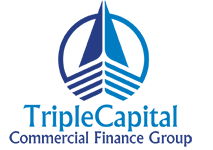Retail Financing For Storefront Entrepreneurs
Having cash on hand for business needs can be a nerve wracking aspect of business ownership for entrepreneurs. This is especially true for entrepreneurs who own their own storefront; funds need to be used for upkeep of the store, inventory and possibly even payroll. The best option in this situation is to investigate retail financing for storefront entrepreneurs, which can be a confusing process for an entrepreneur to navigate. However, there are many resources and tools at their disposal to guide them through the necessary tasks.
The first task that an entrepreneur should tackle when considering retail financing is to determine the main reason for requiring a larger cash flow. For most storefront entrepreneurs, the biggest reason more funds are needed is to better manage inventory. A storefront business will want to have enough inventory on hand to give customers buying options, but not so much as to have items sitting in the storeroom and collecting dust. It is a fine line between profitable and pauperism that must be navigated and retail financing can help.
The next task is to explore the retail financing options and how each would benefit the business. For instance, some feel that the business line of credit option has the most advantages for storefront entrepreneurs. The line of credit is logical for many reasons. First of all, with a line of credit, the amount you pay back is dependent on what amount you advance. That means you only advance what you need, and only pay back what you owe. What you advance can vary from month to month, so in months when certain items in your inventory have sold well and need to be replenished you will have cash on hand to complete your orders. On the other hand, during times when inventory moves more slowly there will be no obligation to advance anything from the line of credit.
The business line of credit is only one of many financing options for storefront entrepreneurs. Conventional loans, SBA loans and loans for real estate and equipment can be helpful also, depending on your needs. The most important thing is to take stock of your business to determine which option would fit best. Detailed record keeping is vital, particularly for entrepreneurs, because your balance sheets, inventory records and profit and loss statements will likely be required for any financing option you explore. But most importantly, reach out for financing as soon as you notice the need.

